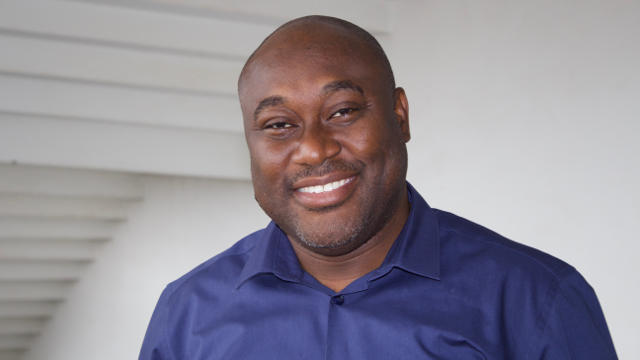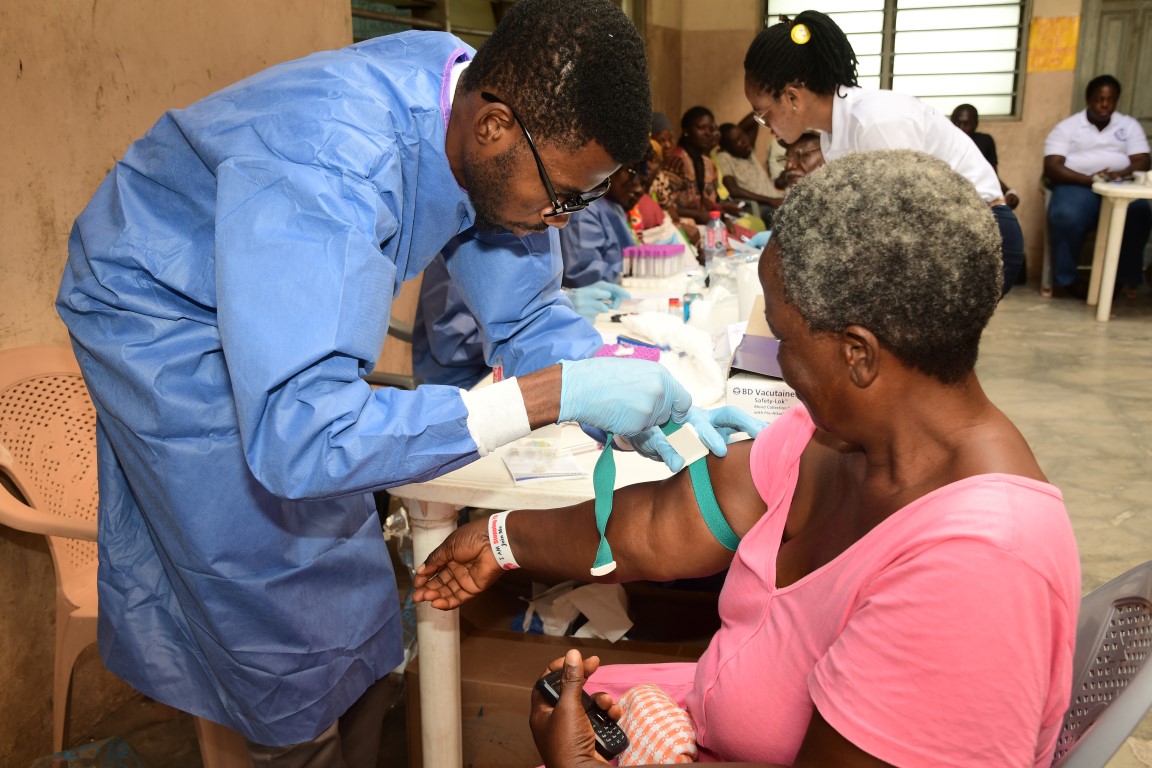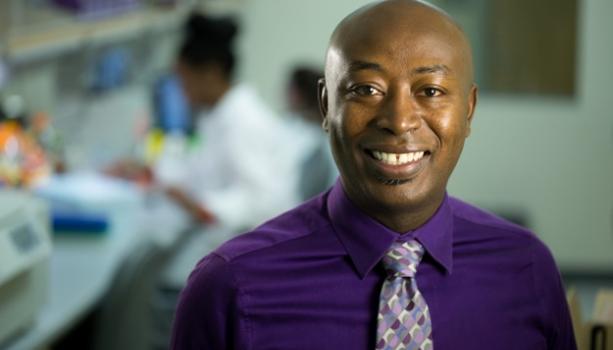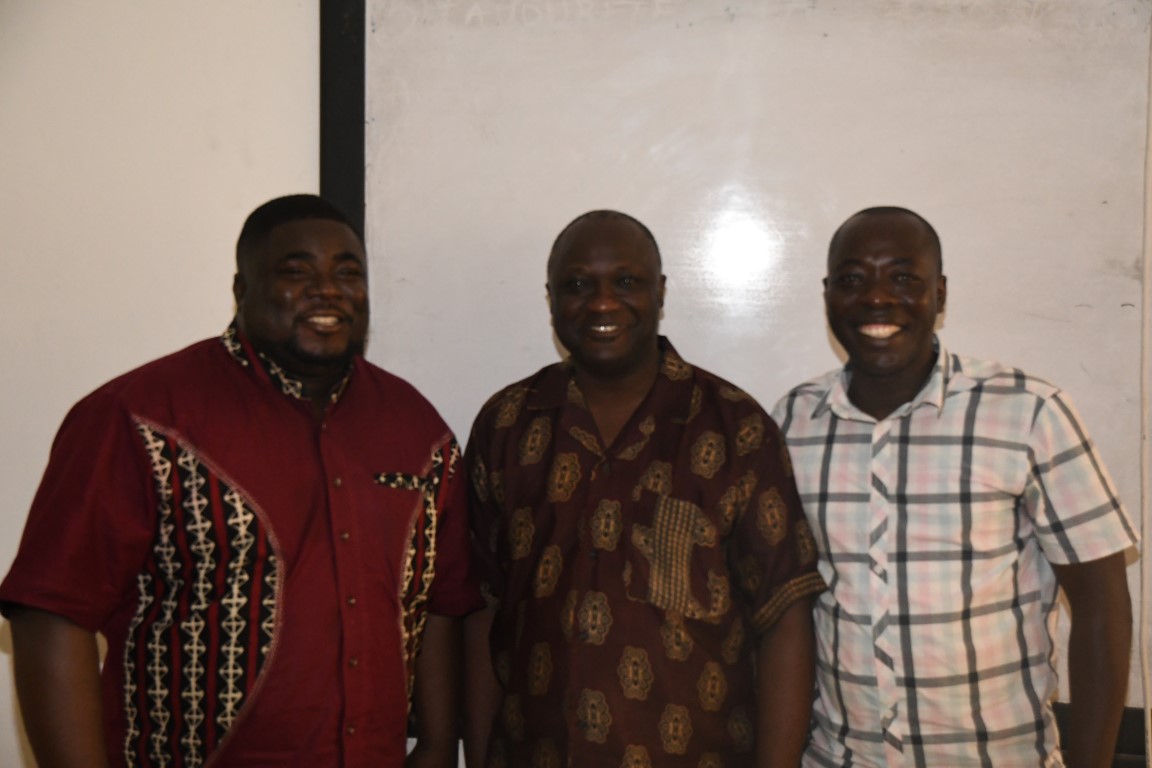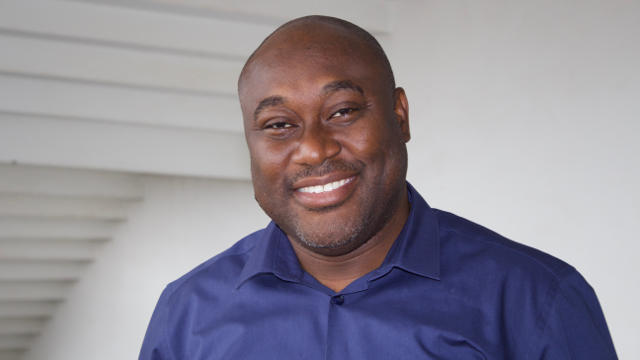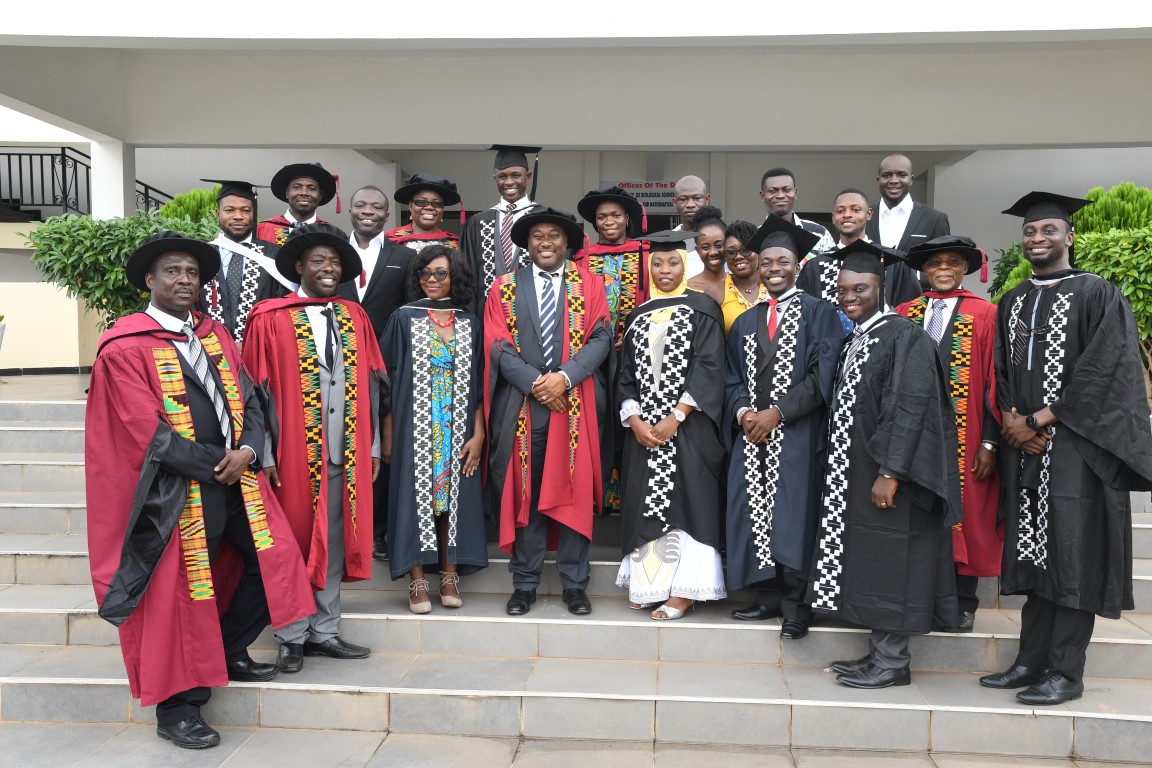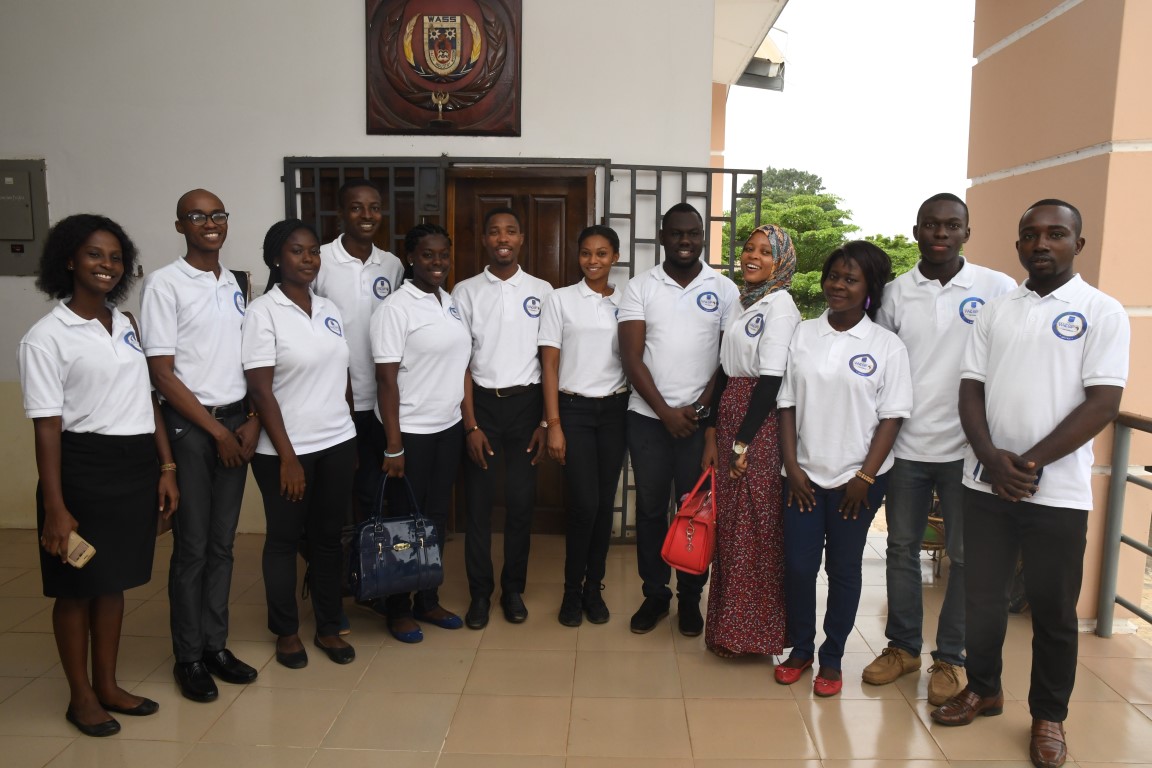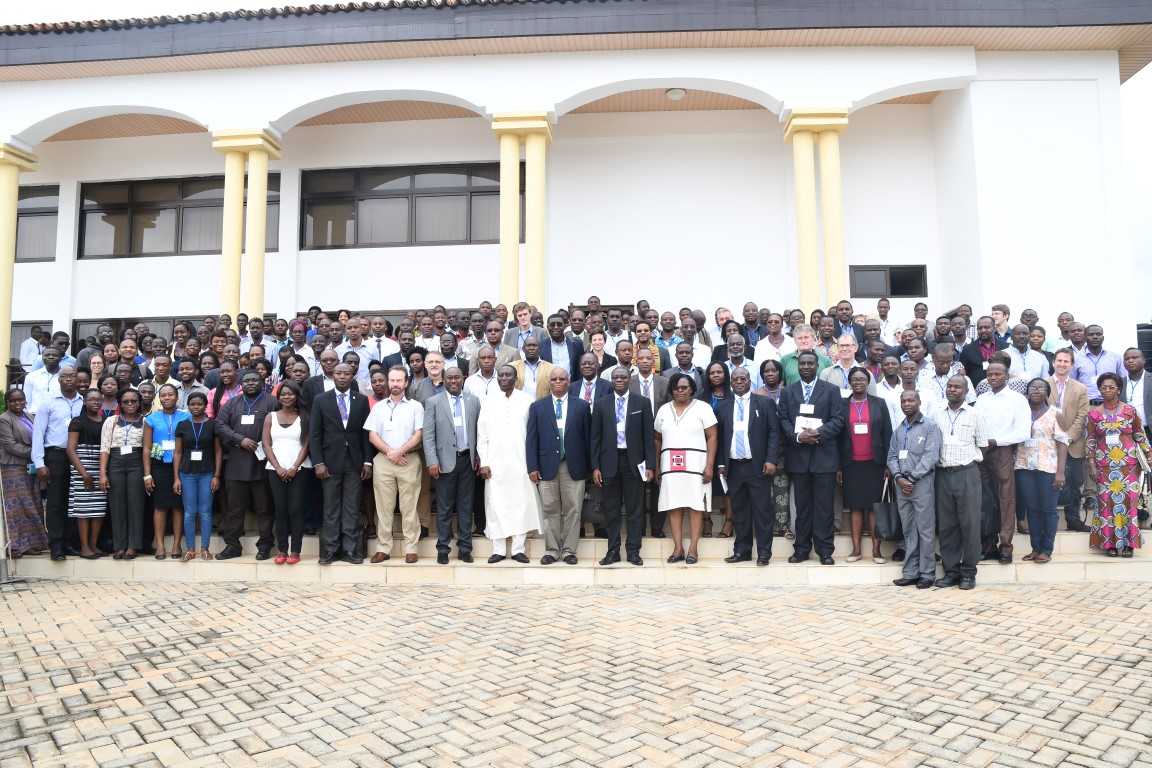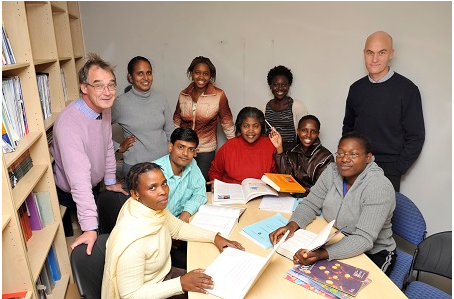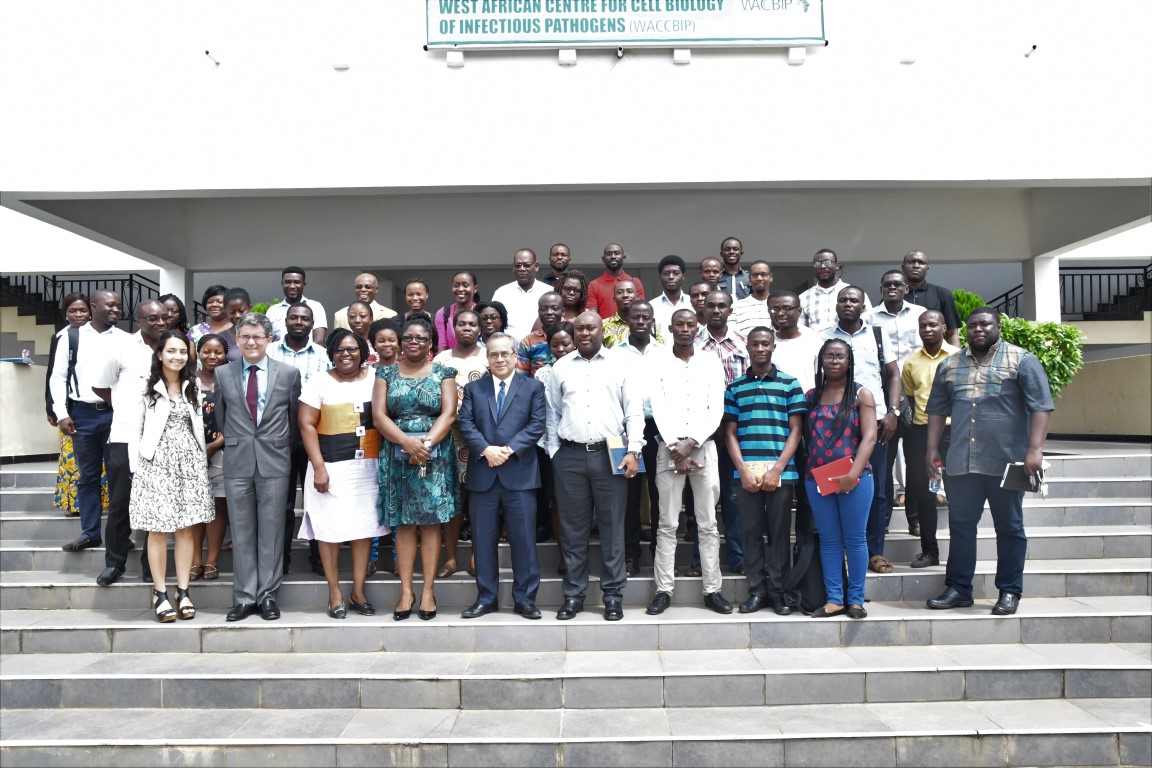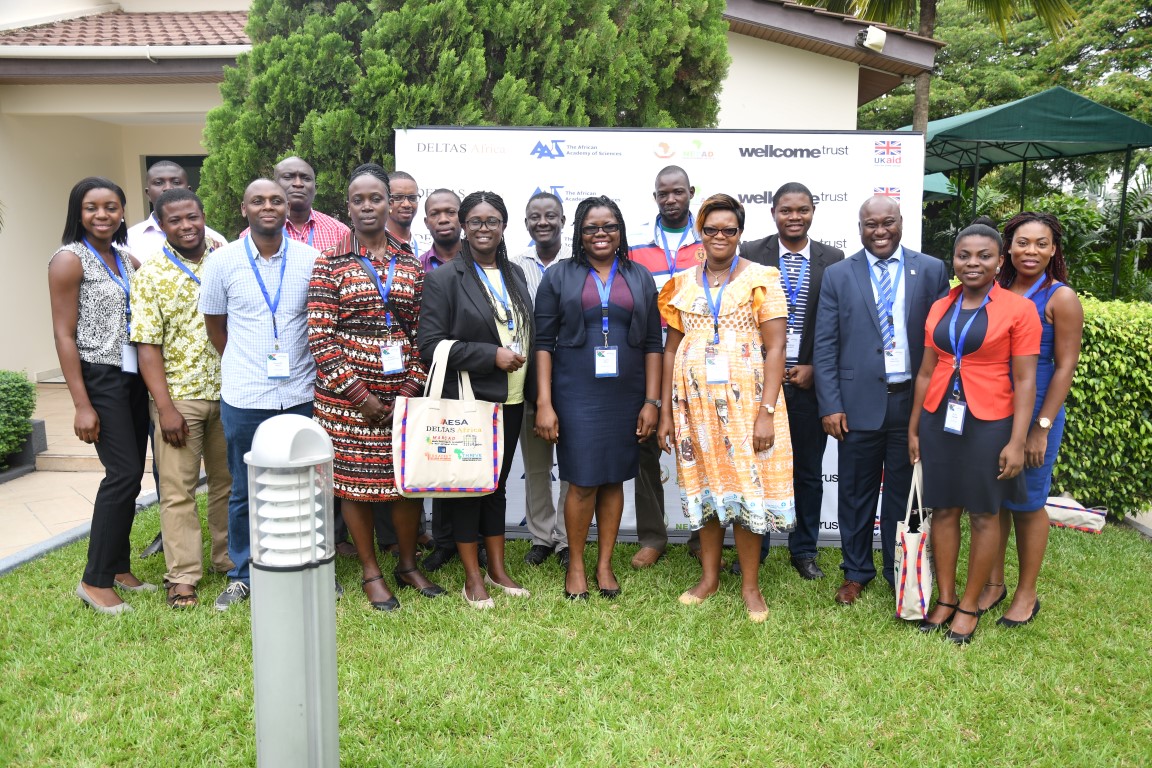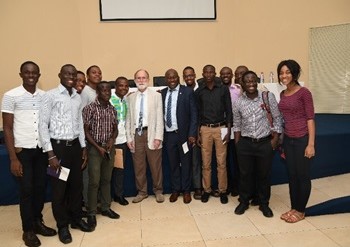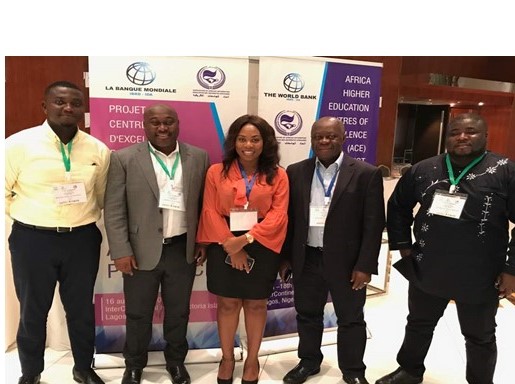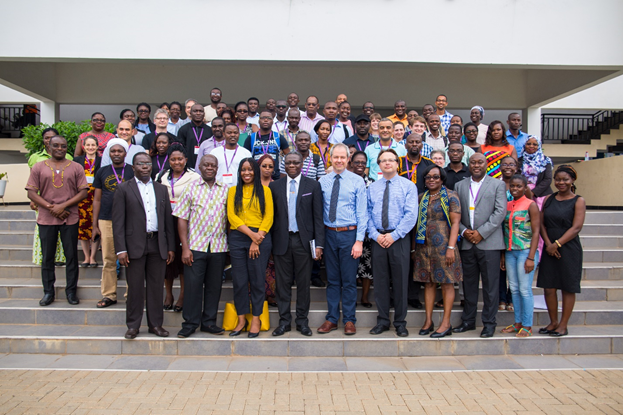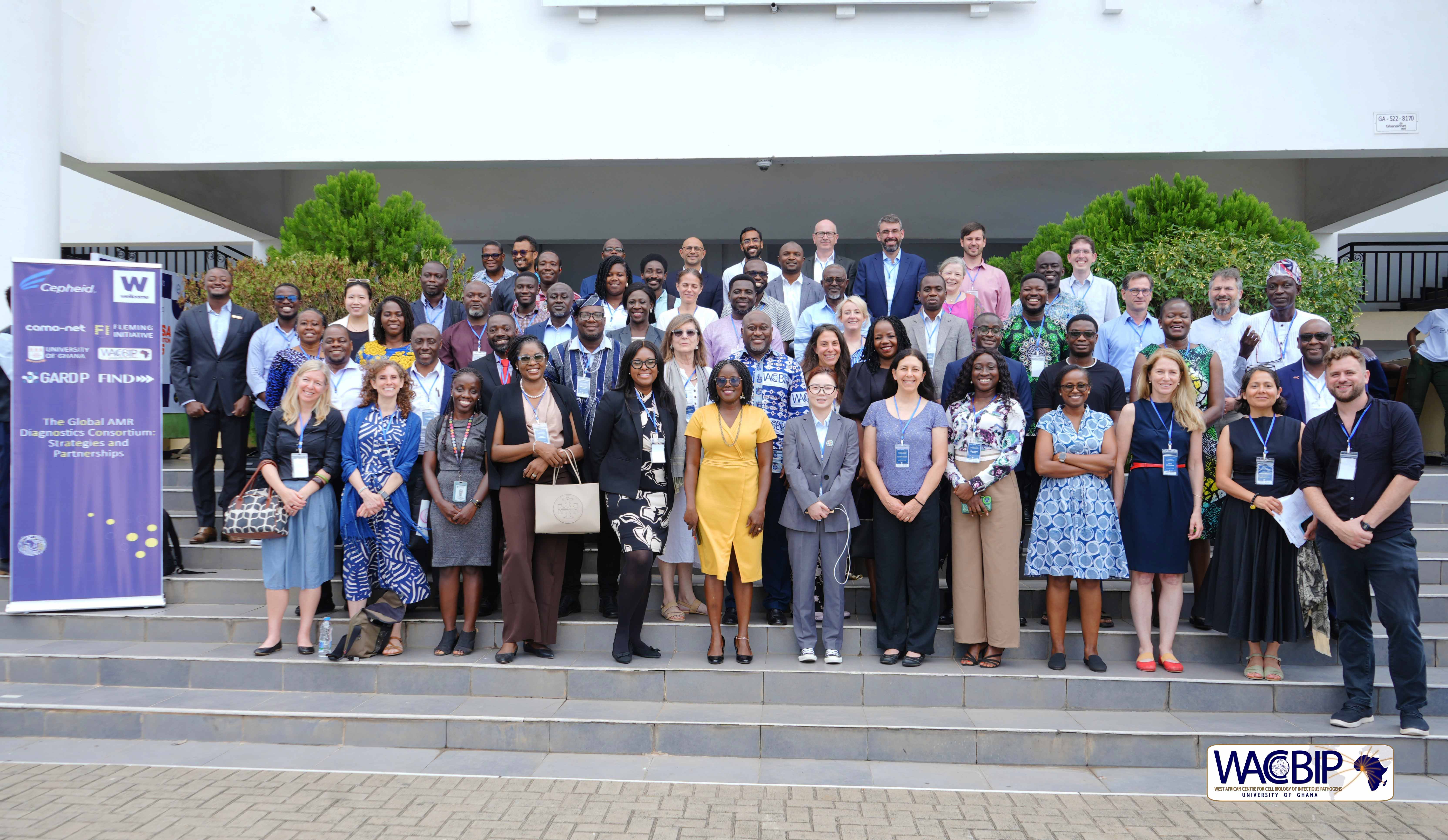Faculty and staff of the West African Centre for Cell Biology of Infectious Pathogens (WACCBIP) attended the three-day joint World Bank African Centres of Excellence (ACE) I and II projects workshop at the La-Palm Royal Beach Hotel in Accra from Tuesday, 7th November to Thursday, 9thNovember, 2017.
The workshop, which brought all the Centres of Excellence in Africa together for the first time, was formally opened by Dr. Matthew Opoku Prempeh, Ghana's Minister of Education. Addressing participants, the Honourable Minister expressed his appreciation at the selection of Accra as the venue for the first joint workshop for the World Bank ACE projects. For him, the choice of venue was a testament to the high standards the three African Centres of Excellence in Ghana are setting in terms of performance and results. He remarked that it was a clear vote of confidence in the strides that Ghana has made in higher education, particularly in the West African sub-region.
“I take this as a huge compliment in all that our country is doing right; especially in relation to what we see as its attractiveness as a preferred destination for higher education in the sub-region,” Dr. Opoku Prempeh said. “But perhaps, more significantly, I believe this is recognition of the fact that all the three Centres of Excellence that Ghana is hosting currently are among the top performing Centres in terms of results achieved.”
Dr. Opoku Prempeh lauded the idea of establishing centres of excellence in Africa that were purposed to become models for establishing higher education institutions as principal producers of knowledge, which would directly impact socio-economic development. He explained that the idea was one that was in convergence with the plans of government to put in place a 'Ghana Centres of Excellence' initiative, which would create more Centres in Ghana like the three funded by the World Bank. He welcomed collaboration with the World Bank and promised Government's support and commitment to improving standards of higher education. Dr. Prempeh announced that steps had already been taken towards providing the conducive environment needed for quality higher education.
“I am also happy to announce that we are taking some concrete steps to enhance the entrenchment of the culture of high quality research in our Higher Education Institutions and Research Centres. In addition to payment of books and research allowance to academic staff of these institutions, government is in the process of setting up a National Research Fund,” he said.
Also emphasizing the role of higher education in Africa's development, the World Bank Country Director for Ghana, Sierra Leone and Liberia, Mr. Henry Kerali, in an address presented on his behalf, affirmed the World Bank's continued commitment to higher education in Africa. Relating the Bank's commitment through the African Centres of Excellence projects, Mr. Kerali explained that the successes of the Centres are leading ground-breaking research to bring new solutions to problems in Africa, a feat the World Bank was proud to continue to support. Successes of the West African Centre for Cell Biology of Infectious Pathogens (WACCBIP) were highlighted, particularly in revenue generation, as Mr. Kerali pointed out a 5.1 million Wellcome Trust grant won by the Centre, beating 50 other proposals across the continent. He, however, encouraged all the Centres to look to improve their performance by developing industry relations, increase numbers of regional students they enrol in their programmes, and by enhancing regionality and sustainability.
The World Bank Task Team leaders for the ACE projects, Mr. Andreas Blom and Dr. Xiaoyang Liang, re-echoed the need for further effort even though performance up to the present has been impressive. Mr. Blom, on his part, stressed that the Centres needed to step up by ensuring that their programmes were student-focused. He explained that training experts in various fields was essential for Africa's development and, therefore, encouraged the Centres to direct funds towards training and academic development.
“Real development is when the skills lie in Africa, not when consultants and experts are imported,” Mr. Blom said. “We need you to step up. Manage contracts and funds so that they are directed towards funding students. Ensure they have the necessary environment to study.”
Dr. Liang was also concerned about the gap in supply of home-grown expertise within the continent. She underlined the lack of experts trained in African institutions of higher learning, even though economic transformation across the continent has boosted demand for specific high-level skills. She explained that education in Africa needs positive reforms to avert a crisis that is worse in Africa than in other parts of the world.
“There is a learning crisis and Africa has the largest share of children who are not in school. It extends to higher education as well, where challenges still persist. Higher education must be part of the reform agenda,” Dr. Liang said.
She said the joint workshop was purposed to facilitate the exchange of ideas and, therefore, encouraged participants to discuss the challenges facing higher education in Africa and come up with solutions for them.
Challenges
Of the challenges identified, the lack of international accreditation for programmes run by the Centres of Excellence was underlined as the most pressing. Mr. Blom, Task Team Leader for the ACE I project, underlined the need for acquiring international accreditation for programmes as an integral Disbursement-Linked Indicator (DLI). He stated that a lot more work needed to be done in getting accreditation for the programmes and encouraged the Centres to focus efforts on getting the necessary international accreditation.
A plenary session on international accreditation and quality assurance was facilitated to give ACEs the needed information towards receiving the accreditation in fulfilment of the World Bank's DLI. Prof. Michel Cosnard from the High Council for Evaluation of Research and Higher Education (HCERES) and Dr. Joe Turner from the Accreditation Board for Engineering and Technology (ABET) both detailed the requirements for accreditation for their institutions. ACEs were encouraged to, among other requirements, clearly define an internal governance structure that suits their unique environments and ensure participation of all stakeholders in organisational decision-making; to clearly define programmes in terms of student admission, progress and qualification; and also to ensure a focus on students in terms of quality learning resources and participation in governance structures.
A challenge in student recruitment across all the Centres was also underlined, particularly in the lack of balance in gender and regionality. ACEs were encouraged to close gender gaps in student recruitment and to endeavour to recruit more students within their immediate regional areas into their programmes. In her report, Mrs. Adeline Addy, Monitoring & Evaluation Officer of the Association of African Universities (AAU), explained that although progress of enrolment was generally good, the proportion of regional students was still lower than the targets set for the Centres. ACEs, according to Mrs. Addy, had fulfilled 24 percent of the 30 percent target set for them for the year in review. Percentages showing the gender balance in enrolment, however, were not as encouraging. According to the report, of the 7755 students enrolled in programmes offered by all the African centres of Excellence, only 2,047 were female, a number that made up only 26 percent of the total enrolment and significantly short of the annual gender balance targets.
Targets set for externally generated funds and student internships were also of concern, as ACEs, save a few, were generally found to have fallen short of their targets. Ghana's three Centre's of Excellence were commended for being among the few to have exceeded their targets. The Regional Water and Environmental Sanitation Centre Kumasi (RWESCK) and the West Africa Centre for Crop Improvement (WACCI)achieved 111 percent and 337 percent of their respective external revenue generation targets, with the West African Centre for Cell Biology of Infectious Pathogens (WACCBIP) leading the pack after exceeding its target by a massive 451 percent. WACCBIP was singled out for its exemplary revenue generation performance after generating $1,352,645 in external revenue.
Number of student internships, on the other hand, were still inadequate for most of the Centres. Generally, ACEs had managed to achieve 84 percent of the target student internship requirements. Some participants highlighted the difficulty in finding established industry players in the first place as a major impediment to fulfilling the World Bank requirement. Another common challenge was the lack of space for internships even in the few organisations that are established in the ACE host nations. A plenary session on the third day of the joint workshop, which brought in major players in industry on the African continent, focused on guiding ACEs in their university-industry linkage efforts. Dr. Ivan Twagirishema, CEO of Ngali Holdings in Rwanda, Mr. Richard Edema of Uganda MaCCRI, Mr. Daniel Redda of ARERI in Ethiopia, and Prof. Longbai Wei from the Zhejiang University in China led the discussions.
Parallel Sessions & Peer-Learning
The joint workshop, which was mainly designed to facilitate discussions among experts and the ACEs, as well as among the ACEs themselves, fostered mutual performance appraisal and peer-learning among the Centres. Parallel sessions grouped ACEs by area of focus and various discussions were facilitated by experts in the specific research areas.
Participants made presentations on their progress and shared experiences, challenges and lessons learnt. There were group sessions for various regulatory and governance-related discussions including disbursement support and financial management. Participants were also given the opportunity to hold performance and support discussions throughout the workshop. The WACCBIP team took part in discussions led by Prof. Michelle Niescierenko on the successes and challenges of the Health ACEs.
Sika Menka, Research Development Officer at WACCBIP, expressed her satisfaction in the general relevance of the discussions facilitated at the joint workshop. She was happy with the range of expertise that the ACEs were able to draw on.
“I attended meetings with the Finance team [of experts] and then the Monitoring & Evaluation team,” she said. “I thought it was good and it gave us the opportunity to interact with the new health ACEs.”






